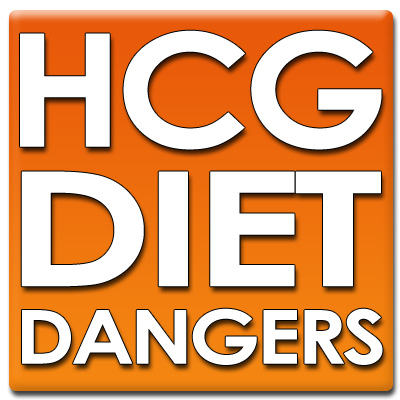Anyone who has ever been on a diet—and there are many of us—knows that there are sensible ways to lose weight. These include balanced diets, exercising and realistic goals.
And then there are reckless ways to shed pounds—fads and diet aids that promise rapid weight loss, but often recommend potentially dangerous practices. These include HCG weight-loss products marketed over-the-counter (OTC) that are identified as “homeopathic” and direct users to follow a severely restrictive diet.
The Food and Drug Administration (FDA) is advising consumers to steer clear of these “homeopathic” human chorionic gonadotropin (HCG) weight-loss products. They are sold in the form of oral drops, pellets and sprays and can be found online and in some retail stores.
FDA and the Federal Trade Commission (FTC) have issued seven letters to companies warning them that they are selling illegal homeopathic HCG weight-loss drugs that have not been approved by FDA, and that make unsupported claims.
(For the list of manufacturers, distributors and products—and more information about FDA’s concerns about HCG—visit www.fda.gov/hcgdiet.)
HCG Makes Big Claims
HCG is a hormone that is produced by the human placenta during pregnancy.
Products that claim to contain HCG are typically marketed in connection with a very low calorie diet, usually one that limits calories to 500 per day. Many of these popular HCG products claim to “reset your metabolism,” change “abnormal eating patterns,” and shave 20-30 pounds in 30-40 days.
“These products are marketed with incredible claims and people think that if they’re losing weight, HCG must be working,” says Elizabeth Miller, acting director of FDA’s Division of Non-Prescription Drugs and Health Fraud. “But the data simply does not support this; any loss is from severe calorie restriction. Not from the HCG.”
HCG is approved by FDA as a prescription drug for the treatment of female infertility, and other medical conditions. It is not approved for weight loss. In fact, the prescription drug label notes there “is no substantial evidence that it increases weight loss beyond that resulting from caloric restriction, that it causes a more attractive or ‘normal’ distribution of fat, or that it decreases the hunger and discomfort associated with calorie-restricted diets.”
HCG is not approved for OTC sale for any purpose.
A Potentially Dangerous Diet
Living on 500 calories a day is not only unhealthy—it’s hazardous, according to FDA experts. Consumers on such restrictive diets are at increased risk for side effects that include gallstone formation, an imbalance of the electrolytes that keep the body’s muscles and nerves functioning properly, and an irregular heartbeat.
Shirley Blakely, a nutritionist at FDA’s Center for Food Safety and Applied Nutrition, echoes concerns about such restrictive diets. They can be dangerous, she says, and potentially fatal.
Very low calorie diets are sometimes prescribed by health care professionals for people who are moderately to extremely obese as part of medical treatment to lessen health conditions caused by obesity, like high blood pressure. But even then, strict—and constant—medical supervision is needed to ensure that side effects are not life threatening, says Blakely.
Without medical oversight, consumers on very low calorie diets may not be getting enough vitamins, minerals and—most critically—protein.
“In general, the reference (average) calorie level is 2,000,” says Blakely. “If you want to lose weight, reduce your daily intake by 500 calories. Over the course of a week, that equals 3500 calories, which is the loss of a pound. Gradual weight loss is the way to do it.”
Story Started Decades Ago
Miller explains that HCG was first promoted for weight loss in the 1950s. “It faded in the 1970s, especially when it became apparent that there was a lack of evidence to support the use of HCG for weight loss,” she says.
The diet has become popular again and FDA and FTC are taking action on illegal HCG products. “You cannot sell products claiming to contain HCG as an OTC drug product. It’s illegal,” says Brad Pace, team leader and regulatory counsel at FDA’s Health Fraud and Consumer Outreach Branch. “If these companies don’t heed our warnings, they could face enforcement actions, legal penalties or criminal prosecution.”
Elisabeth Walther, a pharmacist at FDA, explains that the agency does not evaluate homeopathic drug products for safety or effectiveness, and is not aware of any scientific evidence that supports homeopathy as effective. However, those that meet certain conditions set by FDA can be marketed. A reference document called the Homeopathic Pharmacopoeia of the United States lists active ingredients that may be legally included in homeopathic drug products.
“HCG is not on this list and therefore cannot be legally sold as a homeopathic medication for any purpose,” Walther says.
FDA advises consumers who have purchased homeopathic HCG for weight loss to stop using it, throw it out, and stop following the dieting instructions. Harmful effects should be reported online to FDA’s MedWatch program or by phone at 800-FDA-1088 (800-332-1088) and to the consumer’s health care professional.
This article appears on FDA’s Consumer Updates page, which features the latest on all FDA-regulated products.
Source: U.S. Food and Drug Administration’s website

